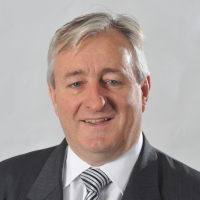
Too many scandals have plagued the advice industry. Winning back trust requires more than educating advisers, it requires educating licensees. A collaborative approach by industry can make it happen.
The financial planning industry remains at a crossroads. The faith of the public, regulators and government has been shaken by a long list of scandals that continue to play out.
For anyone who cares about the broader industry, compliance should not be a competitive advantage. No one goes to a supermarket and asks if the food they’re buying will make them sick. Customers assume it’s safe because the supermarket complies with food safety standards, leaving them free to compare goods on quality and price.
Yet, when it comes to financial advice, customers still feel they need to assess the basic compliance and competence that underpins that advice. This isn’t practical for most people so they fall back on the strength of a referral or personal rapport with an adviser.
The industry shouldn’t have to rely on regulators or government to solve this problem – it can take matters into its own hands. By working together, the industry can take this basic question out of the advice equation.
Just as supermarkets don’t compete on food safety standards, licensees and advisers shouldn’t use compliance with the law as a competitive advantage.
The education of advisers has attracted significant attention in recent years and the bar is being raised. However, there hasn’t been enough attention focused on the education of licensees. The two are deeply intertwined.
A co-operative approach
Many licensees still display far too much variation in their regulatory understanding and knowledge.
Many small licensees started as one-adviser operations that eventually grew into small businesses. Unfortunately, they don’t have the background or resources to create a consistent base level of proficiency across their practice.
By comparison, large bank-owned dealer groups have the resources but face conflict of interest issues around their vertically integrated business models. They continue to trade on trust even as their actions have eroded it.
It’s no longer enough for the industry to allow this to continue. All licensees – big and small – should work together to share their interpretations of regulations and compliance in an effort to create a uniform standard.
Industry bodies such as the AFA and FPA could potentially act as a conduit to help alleviate any commercial sensitivities and spread this information between licensees.
It shouldn’t be left to the corporate regulator to provide guidance when a range of common errors still regularly occur such as recommending inappropriate alternative products and strategies, providing unsuitable statements of advice and poor remuneration disclosure practices.
There are some challenges to this collaborative approach. Licensees would need to be aware of the implications for legal privilege (once you give information to someone else beyond the lawyer-client relationship it generally loses its privilege). Different lawyers will also interpret legislative risk in different ways, often under guidance from their licensee.
Legal risk is naturally subjective rather than objective. Well-known psychology professor Paul Slovic pointed out the subjective nature of risk in a research paper about the mortality risk associated with airborne toxic material. The risk depends on the measure and he pinpoints nine different assessments ranging from ‘death per million people’ to ‘loss of life expectancy’.
Similarly, different licensees interpret legislation by their own measures of what is acceptable legal risk.
But this is exactly why we need to begin sharing this type of information and forming an industry-wide approach to make the compliance of licensees standard.
The public should have faith that all licensed advisers are fully compliant with the law. Just as with other services, their decisions should be based on how the quality of advice and price matches their personal circumstances and preferences.
By working together, the industry can – and should – make this a reality.
Grahame Evans is the managing director of GPS Wealth.
Never miss the stories that impact the industry.